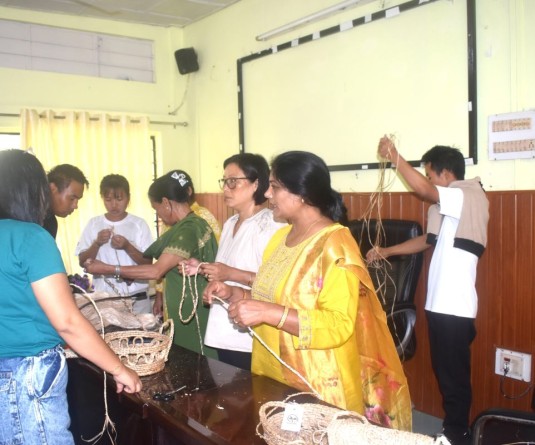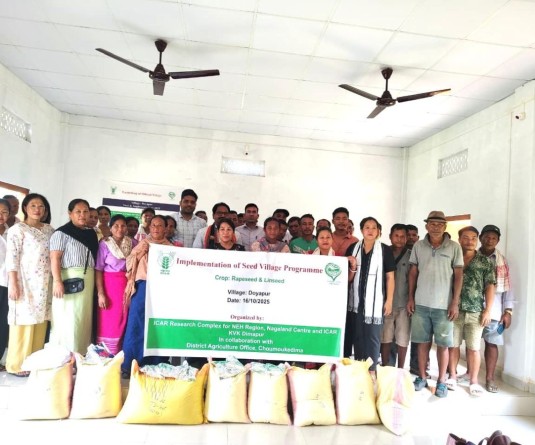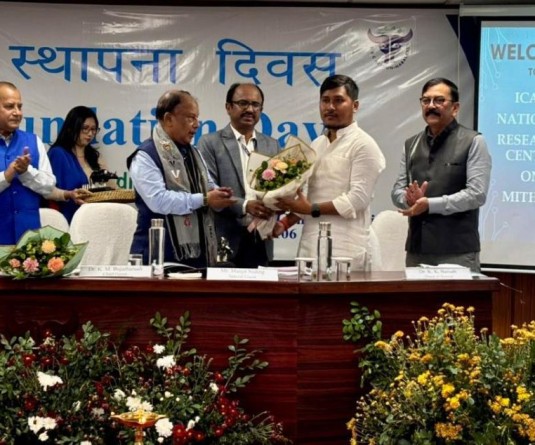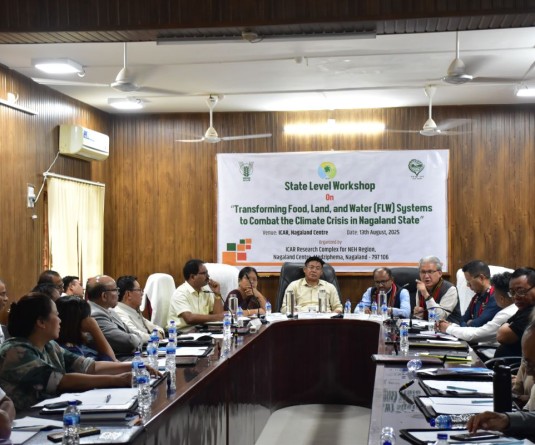
Dr Vandana Verma & Mr. Tokivi Zhimomi
Research Fellow. ICAR Nagaland Centre
Now a day’s market flooded with variety of organic food. It is commonly believe that organic farming do not use pesticide and harmful chemicals as fertilizers and plant growth promoters, and organic fruits and vegetables are safer to consume than conventionally grown crops. Organic food is promoted as superior and safer for today’s health conscious people. It is claimed that they are pesticide free and have more micronutrients. Consumer pays more for these products.
It is true that organic pesticide comes from a natural sources but it does not mean that they as such can be used in organic farming or not harmful for us as well as our ecosystem. In organic farming some pesticide and plant growth supplements which are recommended safe but actually they are found more toxic than any other pesticide or fertilizer we use in conventional methods of farming. Some harmful and toxic chemical declared as safe for organic farming;-
1. Boron It is used as pesticide but prolonged ingestion may affect the brain, liver and heart. It is absorbed by our skin cavities while handling with it and causes anorexia, weight loss, vomiting, skin rashes and mild diarrhea.
2. Acetic acid At more diluted level it is known as vinegar (consumable), but in organic farming it is used in about 90% which causes skin burns and eye damage. Sometime used as mixture (acetic acid + salt soap) as herbicide as an alternative to Glyphosate (conventional pesticide) but it is more toxic than glyphosate.
3. Copper sulphate It is used as fungicide to replace Mancozeb. It is nasty stuff for human and highly toxic to fishes. At recommended rates corrosive to skin and eyes, causes reproductive problems in birds, rodents and chickens. It affects earthworms also (which are important part to prepare vermicompost). Copper sulphate is very persistent, once soil is contaminated with copper sulphate there is no practical way to remove it.
4. Pyrethrin It is extracted from flowers but still toxic to bees and causes leukemia while handling by a person or consume its traces indirectly with vegetables and fruit.
5. Hydrogen peroxide It is used to kill micro organisms present in soil or externally on plant parts. Seeds treated with it are hazardous to birds and other wild lives when they consume plant parts.
6. Lime sulphur It is prepared by boiling lime and sulphur together. It is sprayed on fruit trees to control disease such as blight, powdery mildew and insects like thrips and mites. Harmful for earthworms as well as human beings.
7. Rotenone Consuming organic food residue of rotenone enhance onset of Parkinson’s disease. A small amount of this chemical can kill fishes in a whole pond .
8. Methyl Bromide It is used as fungicide to combat spiders, mites, fungi, nematodes, rodents and insects but it effects our brain, kidney, nose, heart, adrenal gland, liver and lungs if consumed. It enhances global warming also by destructing the ozone layer.
9. Azadirachtin It is commonly known as Neem oil. It is natural but harmful for our ecosystem. Causes brain disease like Encephalopathy in children
The difference between synthetic pesticide and organic farming approved pesticide is that with the synthetic product you may get mountains of safety data and regular pesticide residue monitoring while with organic approved pesticides you pay more money to get natural product an well fabricated lies that they are safer for human consumption and environment too. So if we are paying much more for these products it should be really organic and safe for us. Only those natural products should be used for organic farming which are safe for us as well as our environment.
Organic pesticides are that they must come from natural sources. Actually organic farming is a method of farming which primarily aimed at cultivating the land and raising crops in such a way as to keep the soil alive and good for health by use of organic waste (crop, animal, farm and aquatic waste) and other biological material along with beneficial microbes (bio-fertilizers) to release nutrient to crop for increase sustainable production in an eco-friendly pollution free environment. In organic farming harmful inputs should be avoided or excluded totally to protect long term fertility of soil providing crop nutrient.






